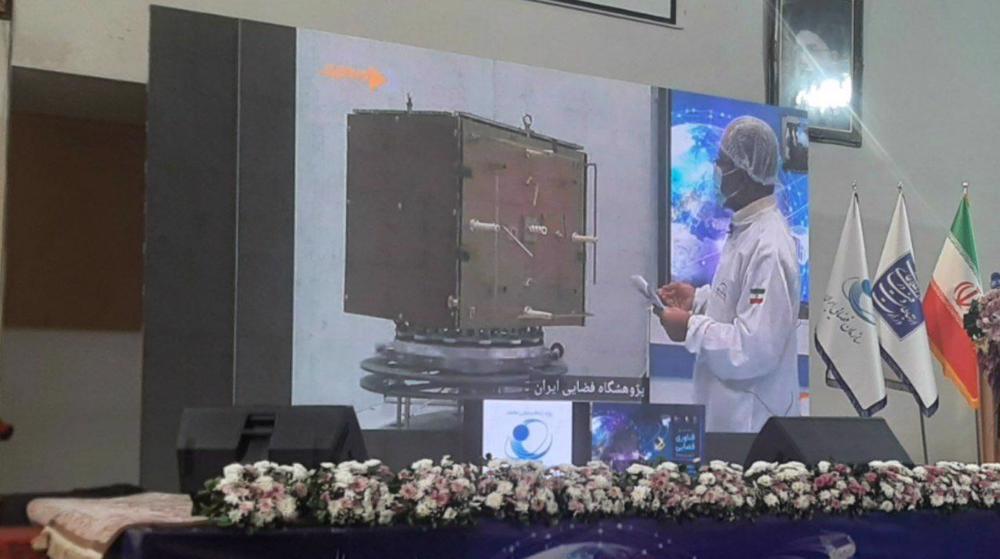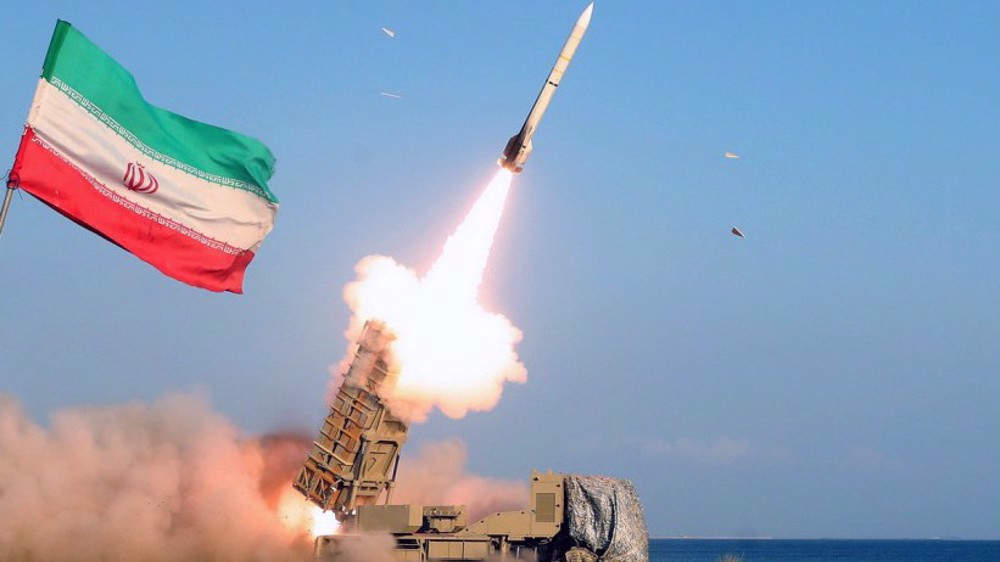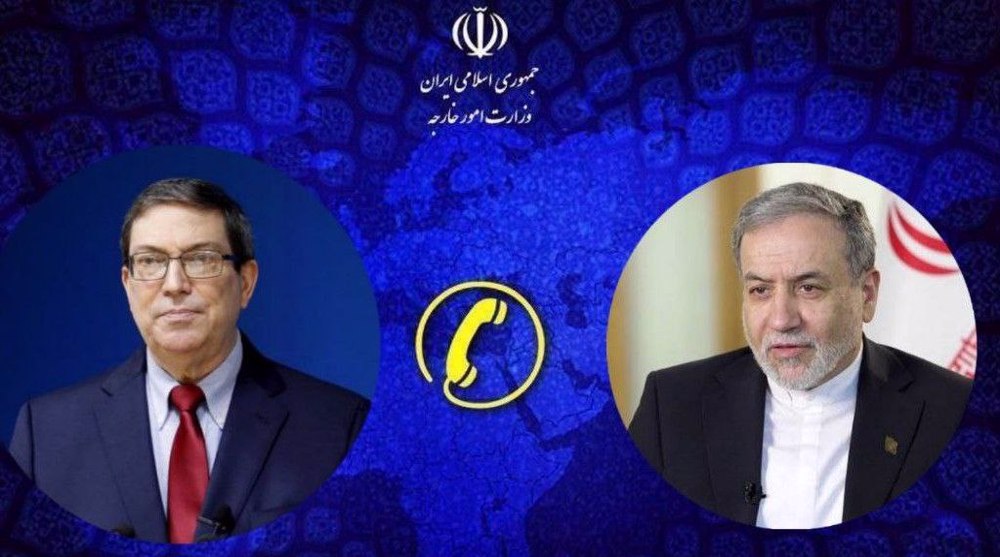On National Day of Space, Iran puts on display homegrown Nahid-2 telecommunications, Tolou-3 remote sensing satellites
The Islamic Republic of Iran has unveiled two indigenous telecommunications and imaging satellites designed and manufactured by the country’s specialists during an event attended by a number of high-ranking Iranian officials.
The two technological achievements, dubbed Nahid-2 (Venus-2) and Tolou-3 (Sunrise-3), were showcased during a ceremony on Tuesday in Tehran on the occasion of Iran’s National Day of Space.
Nahid-2 telecommunications satellite has been built by the Iranian Space Research Center at the request of the Iranian Space Agency (ISA).
It reportedly has a lifespan of at least 2 years, and will be revolving at a height of 500 kilometers above the earth's surface in a circular orbit.
Nahid-2 will undertake multiple telecommunications missions, such as simultaneous telephone communications and would secure data storage and transmission.
The satellite has already passed all its tests successfully and is ready for launch.
Tolou-3 satellite is an imaging satellite commissioned by the ISA and produced by Iran Electronics Industries.

With a weight of 150 kilograms, Tolou-3 is believed to be the heaviest satellite manufactured in Iran.
Tolou-3 is capable of capturing black and white images with a spatial resolution of five meters. It also a 10-meter resolution in color mode.
The satellite, which strongly relies on equipment and tools produced by Iranian knowledge-based companies, is expected to be placed into an orbit 500 kilometers above the Earth.
Iran launched its first satellite Omid (Hope) in 2009 and its Rasad (Observation) satellite was sent into orbit in 2011.
In 2012, the Islamic Republic successfully put its third domestically-made satellite, Navid (Promise), into orbit.
In April 2020, Iran announced the successful launch of its first military satellite into orbit. And in March 2022, it blasted its second military satellite into space.
China slams ‘bullying’ US demand for exclusive Venezuela oil partnership
Russia deploys submarine as US attempts to seize oil tanker in Atlantic
Magnetic revolution: Iran’s nano-solutions driving cleaner and greener oil industry
Deadly clashes erupt in Syria’s Aleppo as US-backed SDF forces defy HTS rule
FM Araghchi: Iran’s internal affairs solely matter of its people
Iran army chief: Enemy threats will not go unanswered
Iran: Israeli FM’s visit to Somaliland a ‘dangerous precedent’
Rome protests Maduro abduction by US










 This makes it easy to access the Press TV website
This makes it easy to access the Press TV website